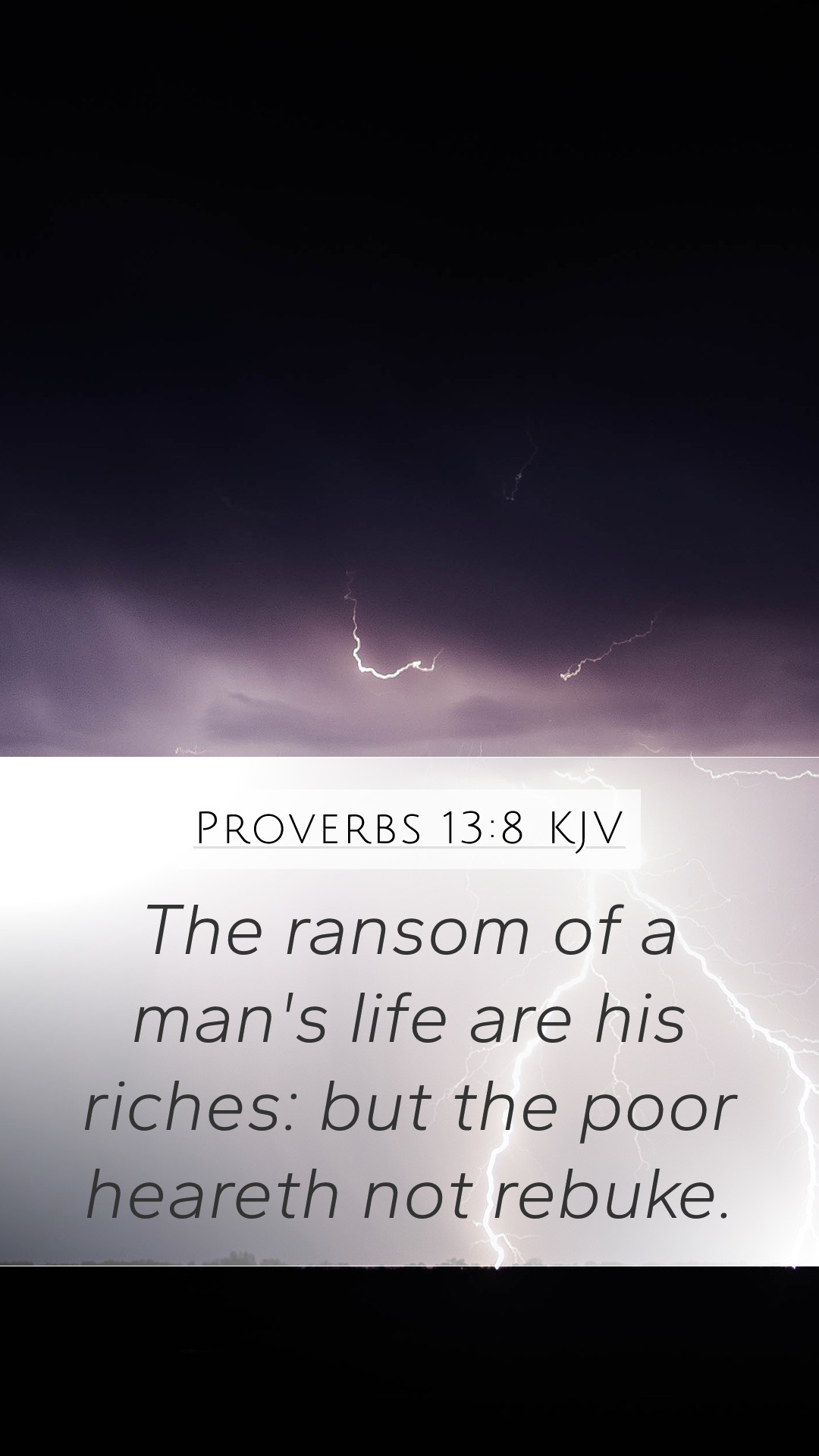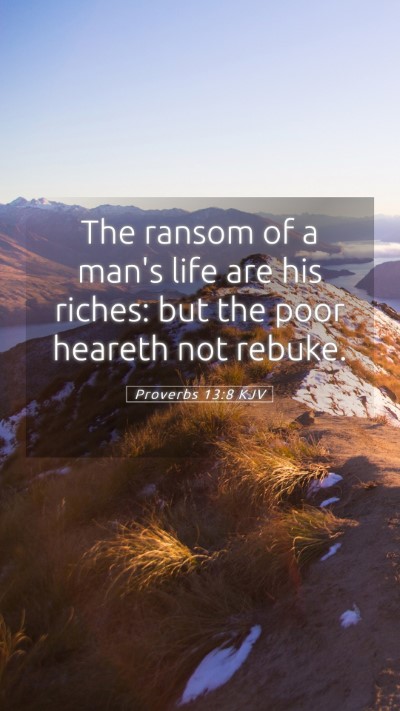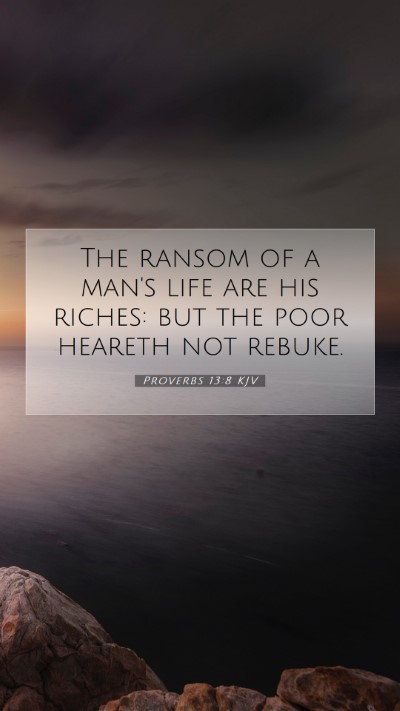Understanding Proverbs 13:8
Proverbs 13:8 states: "The ransom of a man's life are his riches: but the poor heareth not rebuke." This verse encapsulates profound truths about wealth, its influence over life and choices, and the dynamics of privilege and vulnerability.
Bible Verse Meanings and Interpretations
When interpreting this Bible verse, insights from renowned public domain commentaries shed light on its message:
Matthew Henry's Commentary
Henry emphasizes that human life can be precious and those who possess wealth often feel a sense of security. However, he warns that riches can create a false sense of invulnerability. In contrast, the poor, who lack such wealth, might not fear reproof or correction as they navigate life without the cushions that wealth provides. This reflection leads us to consider the spiritual implications of riches versus poverty.
Albert Barnes' Notes
Barnes elaborates on the metaphorical use of wealth as a "ransom." He explains that material wealth can often protect individuals from danger or risk, while also serving as a barrier to genuine humility and receptivity to wisdom. Therefore, this verse indirectly highlights how wealth can distort perspectives and hinder one's relationship with God and others.
Adam Clarke's Commentary
Clarke adds to the discussion by outlining how the wealth of a man can indeed be a source of hope and assurance, yet it can also become his downfall. Clarke notes that the rebuke experienced by the poor is often ignored or disregarded. Instead, it creates a unique perspective where those who lack material possessions are more receptive to learning and growth.
Key Themes and Reflections
- Wealth as Security: The verse implies that wealth can serve as a protective barrier, offering the well-off a certain level of confidence in life.
- Poverty and Humility: The poor are often more grounded in humility, possibly making them more open to receiving correction and guidance.
- Spiritual Insight: The verse suggests that reliance on material possessions may blind individuals from recognizing their spiritual needs and the importance of ethical living.
Application of Proverbs 13:8
How can we apply this verse to our daily lives? Understanding scripture requires not just reading, but also reflecting on how it resonates with our experiences:
- Consider the relationship between your possessions and your spiritual state; do they enhance or distract from your faith?
- Practice humility regardless of financial status; recognize that growth can occur in moments of rebuke.
- Engage in acts of compassion and support for those who are less fortunate, acknowledging their insights and struggles.
Cross References
- Proverbs 11:4 - “Riches do not profit in the day of wrath: but righteousness delivereth from death.”
- Proverbs 22:2 - “The rich and poor meet together: the LORD is the maker of them all.”
- Luke 12:15 - “And he said unto them, Take heed, and beware of covetousness: for a man's life consisteth not in the abundance of the things which he possesseth.”
Conclusion
Proverbs 13:8 presents rich themes for consideration in both personal and collective contexts. By understanding and incorporating the interpretations provided by Matthew Henry, Albert Barnes, and Adam Clarke, we can gain deeper insights into the implications of wealth and humility in our lives. This verse serves as a reminder to focus on our spiritual relationships and to remain open to feedback, regardless of our material status.
Engaging further with the text through Bible study groups, online Bible study, and utilizing Bible study tools can enrich your understanding of such verses. Digging deeper into the meaning of Bible verses and seeking Bible study resources allows for a more profound exploration of scripture.


